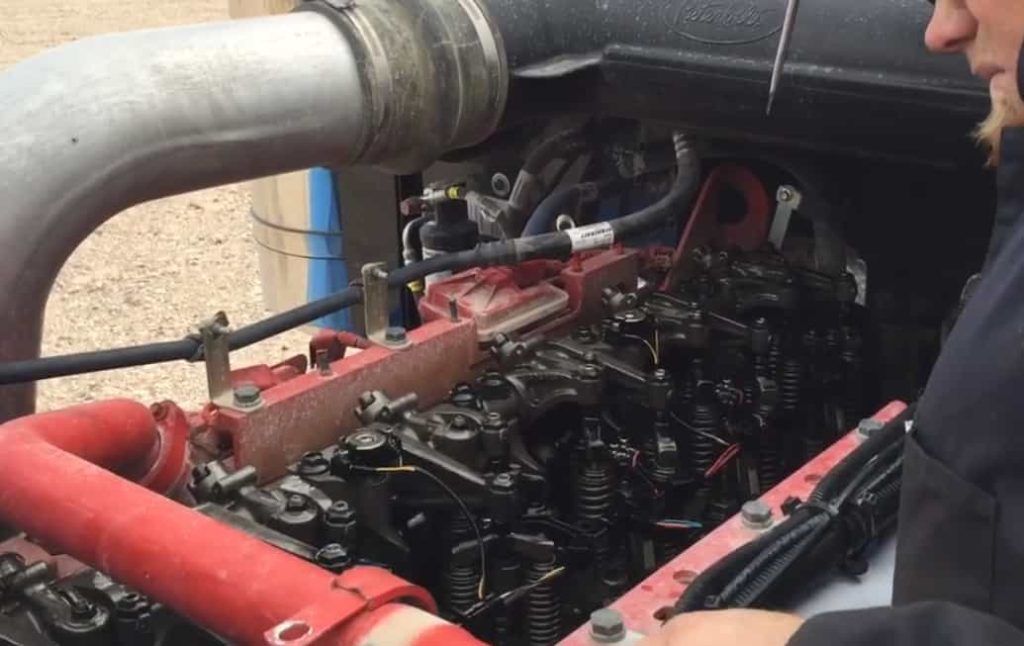You may be wondering about Cummins X15 engine brake problems.
Although the Cummins X15 is robust and dependable, brake problems do occur at one point or another. When these issues happen, it is not only inconvenient, but it can also lead to some safety risks.
This is why in today’s post, we will explore more about these brake problems and some practices to help you address this concern. Let’s get started.

Cummins X15 Engine Brake Problems
A few people complain about their Cummins X15 engine and observe some issues with it. For instance, after turning the engine brake off, they hear a clunking sound. Although this did not lead to any issue with how their vehicle ran, it was concerning to hear such odd noises.
Now, it is also common that the VGT actuator could have failed. This is why the exhaust brake may start to get activated randomly. Acceleration should be difficult, and then you may see a code for your turbo. This is why it may be worth looking into this component to determine what may be causing the problem.
Basically, the Variable Geometry Turbo or the VGT contains movable vanes that vary your turbo effective sizes depending on the RPM and load. These also cause an exhaust braking effect as the exhaust flow is closed and helping to create an exhaust back pressure. Additionally, your actuator makes your vanes move as the ECM commands them to do so.
We do not, however, recommend replacing the VGT unless the ECM prompts the check engine light to switch on and you see an error code show up. Additionally, it may also be an issue with carbon buildup in your VGT mechanism that causes your vanes to get stuck. This is why it is not ideal to quickly replace the actuator as this will not solve the problem. In addition, you may need to replace the entire turbo.
If you see a code, it should be a relatively easy fix. While it is not cheap, it should solve the problem. This is why we do not advise simply changing your actuator without knowing perfectly well what the problem is.
This is something that many people miss, which is why it is good to have a mechanic to diagnose the problem to determine the best solution to take. You may want to use a scan tool that can also calibrate it.
Engine Brake Facts You Should Know
The most common means of reducing your speed is through the footbrake. It is ideal during emergency conditions or even normal driving situations. However, you do not simply rely on the footbrake to slow down. In fact, you can also use engine braking to do this – and it can help prolong the lifespan of your brakes.
When you do an engine brake, you limit the airflow to your engine, which decelerates the speed. This is why as you take your foot right off the gas pedal, this causes your throttle body valve to close immediately. As your engine sucks in air, only a small amount reaches it because of your closed throttle body.
As we have mentioned, engine braking minimizes wear and tear on the brakes. Friction slows your vehicle down in the case of your brake system, and the rotors and brake pads wear out over time. So, if you use engine braking aside from normal braking, you can prolong your brake system’s lifespan while getting the slowing down effect you need.
Additionally, it is more ideal to engine brake when you do a long descent on hills or mountains. When you ride your brakes for too long, they may overheat and the braking ability will be reduced. On the other hand, engine braking has less amount of heat and leads to reduced fade and wear on your brakes while allowing you to descend properly and safely.
Engine braking also aids in fuel efficiency. This is because your engine halts fuel consumption. While it may only be a little fuel savings, it adds up very quickly. This is particularly beneficial when you are going on a long road trip.
But there are some risks to keep in mind. If you engine brake, there is a potential risk of damaging the transmission, so it is good to apply the right practitioners to prevent this. Avoid shifting to a low gear when you are at a high speed. This will not only cause discomfort but your engine and transmission will be prone to straining and can sustain some damages.
Also, never skip gears. You should shift down a gear at a time, and you need to provide your vehicle ample time to adjust right before you shift once more. And you should never overuse your engine brake – this is particularly true when you have an automatic transmission.
Read More: All You Need To Know About Cummins ISX15 Oil Pressure Problems
Bottom Line
An engine brake problem can occur at one point or another throughout the lifespan of your engine – even if it is something as robust and powerful as a Cummins X15. This is why it is important to maintain proper driving practices and avoid wearing out key components of your brake system prematurely. If you notice some symptoms of issues with your engine brake, make it a point to have your vehicle diagnosed by a mechanic sooner than later to prevent further damages.